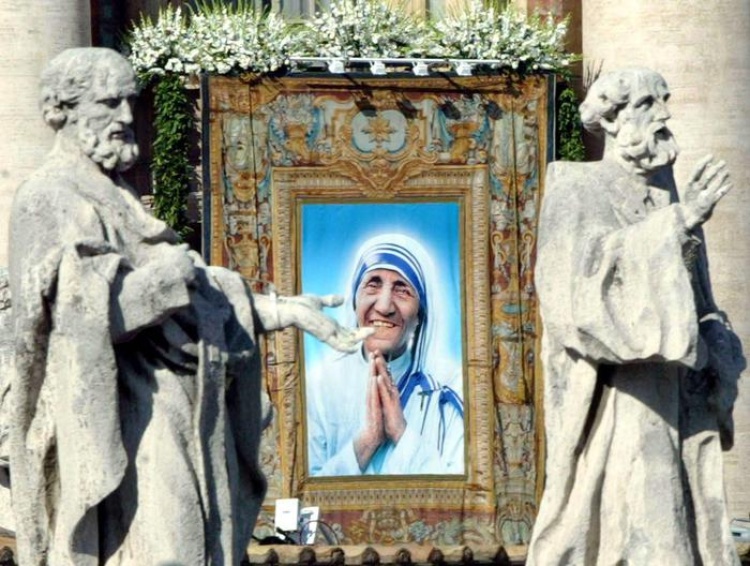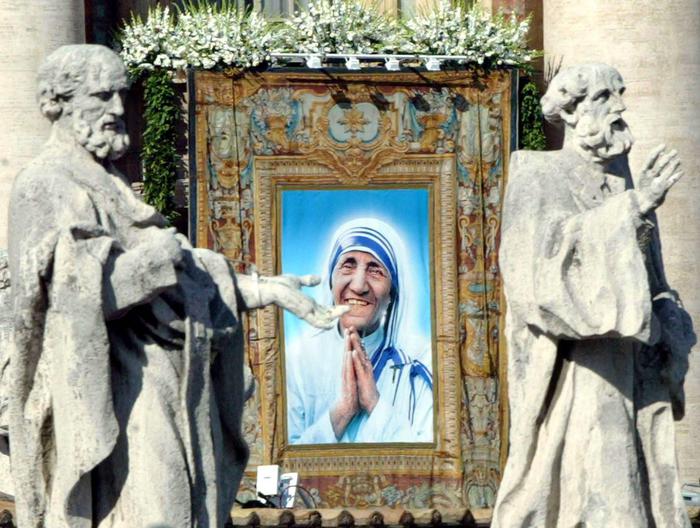An estimated 120,000 people filled Saint Peter's Square for the canonisation ceremony - including hundreds of members of her Missionaries of Charity order, who had front-row seats alongside 1500 homeless people from across Italy.
In his homily, Pope Francis said that Mother Teresa was "a dispenser of divine mercy" who held world powers to account.
"She made her voice heard before the powers of the world, so that they might recognise their guilt for the crimes of poverty they themselves created," Pope Francis said.
Born Agnes Gonxhe Bojaxhiu to Albanian parents on August 26, 1910, in Skopje (the current capital of Macedonia), Teresa travelled to India in 1929 as a member of the Sisters of Loreto before receiving what she described as a "calling within a calling" to found a new order devoted to caring for the "poorest of the poor" in the slums of the Indian city of Calcutta.
In 1950 she founded the Missionaries of Charity, which has since spread to countries around the world and runs hospices for terminal HIV/AIDS, leprosy and tuberculosis patients, as well as soup kitchens, dispensaries and mobile clinics, children's and family counselling programmes, orphanages, and schools.
Its over 4000 members follow Teresa's injunction to work on "small things with great love" for those suffering both material and spiritual poverty.
Mother Teresa received a Nobel Peace Prize for her humanitarian work in 1979.
She died on September 5, 1997, at the age of 87 and was beatified by the Holy See in October 2003.
Beatification is one of the steps towards possible canonisation, which requires the documentation of a miracle performed from the candidate's intercession.
In 2002, the Vatican recognised as a miracle the healing of a tumour in the abdomen of an Indian woman, reportedly after the application of a locket containing Mother Teresa's picture.
Last year, Pope Francis also recognised the healing of a Brazilian man with several brain tumours in 2008 as a miracle.
ANSA












